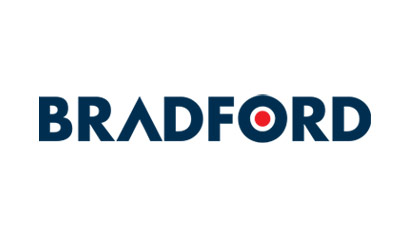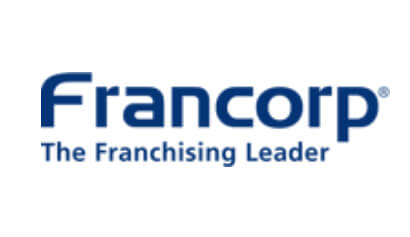To get access to over 10000+ Franchise Business Opportunities.
Network with the growing Business Community to get expert interventions to let you learn to Grow & Expand your Business with Franchising.
With both national and international brands rolling out a red carpet welcome for entrepreneurs in North India, it is pertinent to know who is investing in the franchise business and why.
With both national and international brands rolling out a red carpet welcome for entrepreneurs in North India, it is pertinent to know who is investing in the franchise business and why.
THE Indian economy is young and vibrant as almost 65 per cent of the entrepreneurs belong to the working set of 15 to 65 years. Indian investors with their traditional business acumen and risk-averse attributes are exploring values in the franchise business. Most of the prospective investors, are, therefore young businessmen. Success stories have trigged a trend of women entrepreneurs although their presence is not significant, as men primarily take most of the business decisions. Incidentally, one of the main reasons for women opting for franchising is that they consider it a great way of self-employment. Most of the respondents (86 per cent) didn't have any prior franchising experience, which implies low franchise literacy and awareness. Due to real estate development and untapped investor capital, Class B and C towns are beaming with prospective investors. A very interesting segment of professionals (17 per cent) and corporate employees (4 per cent) exhibited interest in franchise business investment. The reason being, increasing dissatisfaction towards corporate jobs, hence shift towards entrepreneurship.
Major source of information about franchise business opportunities are newspaper (58 per cent) followed by SMS (14 per cent), email (10 per cent), internet (2 per cent), friends (7 per cent) and outdoor media (3 per cent).
Alternate source of income
Typically, it takes 37 days and 198 procedures to start a business in India. This distorts the perception of an aspiring business owner, even the existing businessmen turns pragmatic. This along with the dramatic demand supply pattern makes the venture risk-prone. There is clear indication that primary investors (32 per cent) realise that it's difficult to start an entrepreneurial venture from scratch, so expect a lot of hand holding from the franchise owner. A paradox to this belief is that investors are not opting for franchising because it is a relatively secure way of doing business. A significant percentage of conventional investors want to take up franchise business as an alternative source of income and intend to invest a vacant space (20 per cent) or capital (20 per cent). Therefore, a brand owner must bear in mind that about 40 per cent of their leads are bound to be the investor who can only commit partially.
Choice of sectors
Most of the investors (97 per cent) were clear about their choice of sectors, yet had three to four (average) choices in their mind. Food and beverages, education and fashion were the apparent favourites in the north zone. The coming years will witness a lot of franchise excitement in sectors like entertainment, beauty and wellness and real estate. From the survey results, it appears there is a major possibility that an investor will buy a franchise only if he is convinced that he will get high returns. Evidently, investors from the region do not consider franchising as a low-cost business.
The investment scale
Economy today is flooded with investment options. Business investor, too, has a choice of investing in real estate, equity markets, commodities and of course, business. The north zone could be estimated to have five to six lakh investors with a capacity of investing Rs 10 to 30 lakh, obviously exposed to different investment options and hence, a lateral competition for business buying. Typically, an investor intends to invest Rs 10 to 30 lakh (43 per cent) on a franchise business. Most of the inventors (66 per cent) were self-funded, which could be attributed to lack of any franchising-specific funding mechanism. So, some clear characteristics of the investor from the region are: 20 to 30-year-old with self-funded investment (Rs 10 to 30 lakh), majorly from business family background, unsure of the returns. Investors aged between 20 to 30 years, which is the largest investor category, were primarily not sure about the kind of returns they were expecting from the investment. Assuming that 30 to 40-year-old investor is relatively more serious than the rest, an average return expected is 30 to 40 per cent, which is quiet a contrast to the average return assured by the franchisor, which is 20 to 30 per cent. Hence, difference in expectations can lead to difficulty in selling the franchise concept.
A visibly impatient investor and zero to two years of expectation can lead to some serious implications on long-term franchisee satisfaction. However, the large cap investors (more than Rs 80 lakh) expect three to four years to realise their rate of returns. A small port of investor, mostly aged above 40 years, expects a return on investment which is more than bank rate or could give them a monthly income (2 per cent per month).
Starting a business is easy, sustaining it is an art
Talking about the challenges that could be a huge enabler in the investment decisions, lack of experience is apparently the biggest hurdle for a prospective franchisee. This is a clear indication of a need gap, as there is a tremendous scope for franchise consultants and franchisors to develop communication, which could clear apprehensions about the nature of franchise business. Another reason for investor is fear of stiff competition. An investor must ensure long-term sustainability of the franchise asset he is investing into. There is a huge opportunity for training services for the franchisee staff, as it is considered one of the biggest challenges. Possibility of conflict and lack of freedom in taking decisions are not the major contributors in presenting a challenge for an investment.
Expectations from franchisor
Investor feels he cannot manage the marketing, training and advertising of his business himself. That is the reason he would like to buy a franchise and expects the same functions from the franchisor. These are exactly the ones toping investor's expectations from the franchisor. The franchise manager must ensure that marketing communication clearly defines the marketing and training support, as it could clearly differentiate the investment opportunity as transparent and attractive to the investor. Also, these expectations are the primary deciding factors of long-term franchisee satisfaction.
(The survey was conducted across 1,000 prospective franchise investors from the north region attending various franchise expos and exhibitions.)


Business Opportunities
Browse By Investment Range
Browse By States
Popular Cities
We value your privacy.
You can unsubscribe anytime















